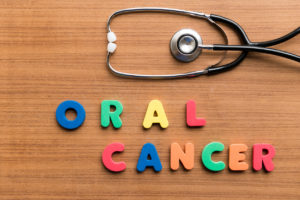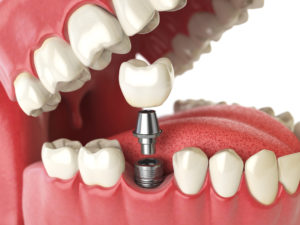
We are here this week, not to make you paranoid, but to inform you about a serious, although rare, disease of the oral cavity: oral cancer. According to the American College of Prosthodontists, early detection offers the greatest chance of survival of oral cancer, but only one-third of cases are found and treated during the early stages. We want to teach you about the steps that your dentist takes to evaluate your mouth for oral cancer at its earliest stages. We also want to teach you about some of the common lumps and bumps that can be found in the mouth that are harmless. We do not want you to think that something innocuous is actually cancer. At the same time, we don’t want you to dismiss a bump as just an irritation if it is actually something more serious. Your dentist is an expert on the oral cavity. If you have any questions or concerns about a new lesion in or around your mouth, you should consult you dentist as soon as possible. Oral cancer is relatively rare, but it still affects over 40,000 Americans each year.





